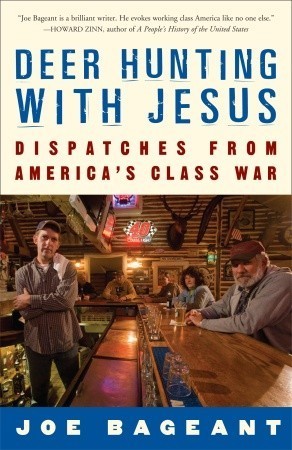What do you think?
Rate this book


275 pages, Paperback
First published June 19, 2007
Middle-of-the-road Jews, Unitarians, Protestants, and Catholics, not to mention the secular humanists among us, cannot imagine how complete a lifestyle the cultish fundamentalist churches provide. This self-referential culture is so focused on religion and conviction that it was bound to come to see the larger secular society as its persecutor and all authority other than God’s, especially that of the government, as corrupt.

Getting a lousy education, then spending a lifetime pitted against your fellow workers in the gladiatorial theater of the free market economy does not make for optimism or open-mindedness, both hallmarks of liberalness. It makes for a kind of bleak coarseness and inner degradation that allows working people to accept the American empire's wars without a blink.
One thing I have noticed is that Republicans' everyday lives seem naturally woven into the fabric of the community in a way that the everyday lives of the left have not been since the Great Depression and the social justice movements of the sixties.Necessary details of these realities (among others) are not the kinds of things covered by mainstream media - which would undoubtedly report on tragedies in a place like Virginia but would never consider human interest stories. If you want some light on the pulse of the natives, you'll have to read someone like Bageant. Or Bageant himself.